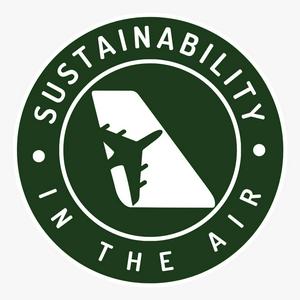In this episode, we speak with Luke Farajallah, CEO of Loganair, UK's largest regional airline that operates the world's shortest commercial flight and the only airline globally that lands commercially on a beach.Farajallah discusses:Loganair's unique "fishing in a big pond" approach to sustainable aviation, investing simultaneously in SAF, hybrid-electric aircraft with Heart Aerospace, and hydrogen propulsion with ZeroAvia rather than betting on a single technology.Why regional airlines are better positioned than major carriers to pioneer sustainable aviation, given their shorter routes, smaller aircraft, and wider technology options beyond expensive, imported sustainable aviation fuel.The company's mandatory £1 carbon offset programme included in every ticket, funding local environmental projects across Scotland through their Green Skies initiative, achieving near-zero customer resistance.Strategic partnerships, including equipping Embraer aircraft with 130kg water vapour sensors for the UK Met Office to study contrail environmental impacts, and plans for the world's first hydrogen-powered commercial flight from Orkney.As a leader who transformed Loganair's operational performance from 22nd to 2nd place in European rankings in just 12 months, Farajallah brings a results-driven approach to balancing commercial viability with environmental responsibility whilst serving communities that depend entirely on aviation connectivity.If you LOVED this episode, you'll also love the conversation we had with Sally Davey, CEO of Travelyst. Check it out here. Learn more about the startups, strategists, and sceptics working to close the gap between growth and green ambition in our new book ‘Sustainability in the Air: Volume Two’. Click here to learn more.Feel free to reach out via email to
[email protected]. For more content on sustainable aviation, visit our website green.simpliflying.com and join the movement. It’s about time.Links & more:New book: Sustainability in the Air, Vol Two - SimpliFlyingLoganair, ZeroAvia ready 2500 kW electric motor for hydrogen aviation future - ElectrekLoganair aiming to deliver the world’s first commercial hydrogen-fuel aircraft route - Glasgow Chamber of Commerce Loganair partners with Heart Aerospace on hybrid-electric aircraft use - Airport Technology Sustainability In The Air (2 book series) Paperback Edition - Amazon How Travalyst is transforming tourism through data-driven collaboration - SimpliFlying


